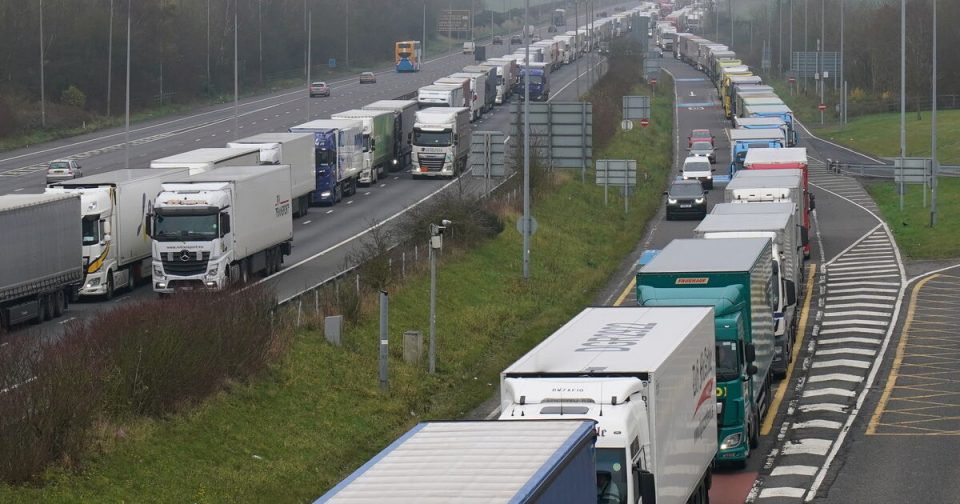The freight distribution and logistics sector has faced unprecedented upheaval in 2021, as a consequence of adopting to the post-Brexit trading environment, dealing with the Covid pandemic, global supply chain issues, rising fuel costs, and an ongoing skills shortage.
These issues are testing the sector’s flexibility and ability to change. It gives credence to the quote from the world-renowned management consultant Peter Drucker who said: “the greatest danger in times of turbulence is not the turbulence, it is to act with yesterday’s logic”.

The recent announcement of the resignation of the UK Brexit Minister David Frost compounds the uncertainty for traders looking to 2022 for a steadying of the paradigm shift in the supply chain.
The full and meaningful implementation of the Trade and Co-operation Agreement (TCA), signed by the UK and the EU 12 months ago, is reliant on trust and strong political relations between the two parties. This has been tested to the extreme as the Northern Ireland Protocol has acted as the catalyst to distract all from concurrently looking to implement trade easements as mandated under the TCA.
Logistics is all about efficiencies and speed and certainty of delivery. With the environment top of the global agenda the implications of post-Brexit trade requirements are ensuring that vital trade distribution functionality is taking a beating and becoming less efficient and more costly and leading to the requirement for more rolling stock on our roads that results in more emissions.
These issues do not seem to resonate at a political level.
Brexit has had a significant effect on freight traffic flows on the island of Ireland, but the most prominent impact has been on the use of the UK landbridge, a term used to describe a route to market that connects Irish importers and exporters to international markets via the UK road and ports network.
Industry has been disincentivised from using the land bridge due to the increased administrative burdens created by the new trading relationship. According to the Irish Maritime Development Office a third of all roll on-roll off traffic in the Republic now operates on direct routes to ports in the EU, twice the share held in the second quarter of 2019.
Sustaining Ireland’s ability to compete for foreign direct investment, as the only English-speaking country in the EU, will require continued development of our global freight connectivity links and a collaborative strategy by key stakeholders to work towards this goal. Direct maritime links to the EU are susceptible to disruptions due to inclement weather conditions, so the traditional route to market via the land bridge is far from extinct.
Developing renewed confidence in the land bridge will not happen overnight. The UK has approached the post-Brexit trade realities by gradually introducing import controls on goods, whereas the EU introduced the full suite of requirements in January 2020. The requirement for pre-notification of imports into Britain from the EU was to be introduced on January 1 2022 but this date has now been postponed. The ongoing uncertainty created through the postponement of implementation dates and the complex nature of the distribution regulations is creating significant problems for businesses.
The costs associated with adopting to the changing environment are significant and could have been stymied in 2021 somewhat if the political will was there to fully implement the trade and co-operation agreement from the time of its ratification.
The pandemic continuing to deliver global rolling economic lockdowns, the resignation of UK Brexit ministers and the increased administrative burdens for traders as we enter the final weeks of 2021 makes it feel like déjà-vu all over again.
- Aidan Flynn is chief executive of Freight Transport Association Ireland


